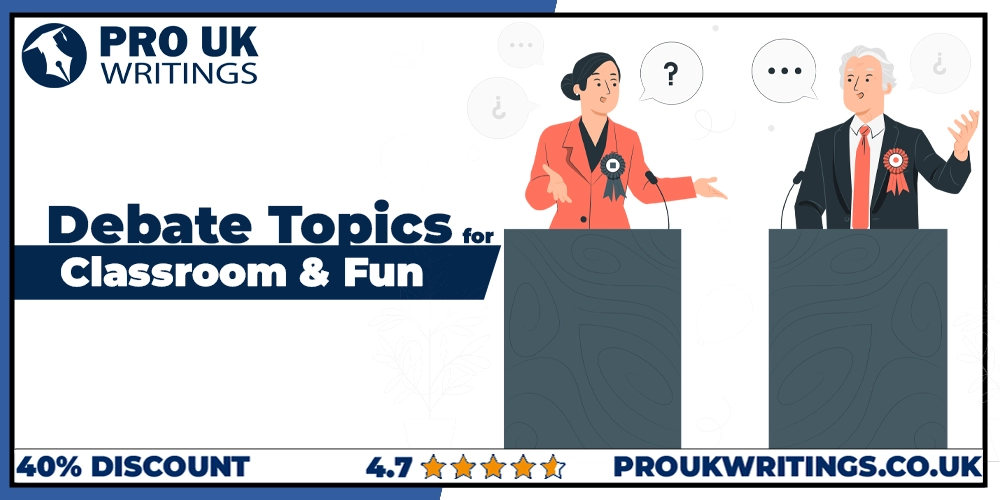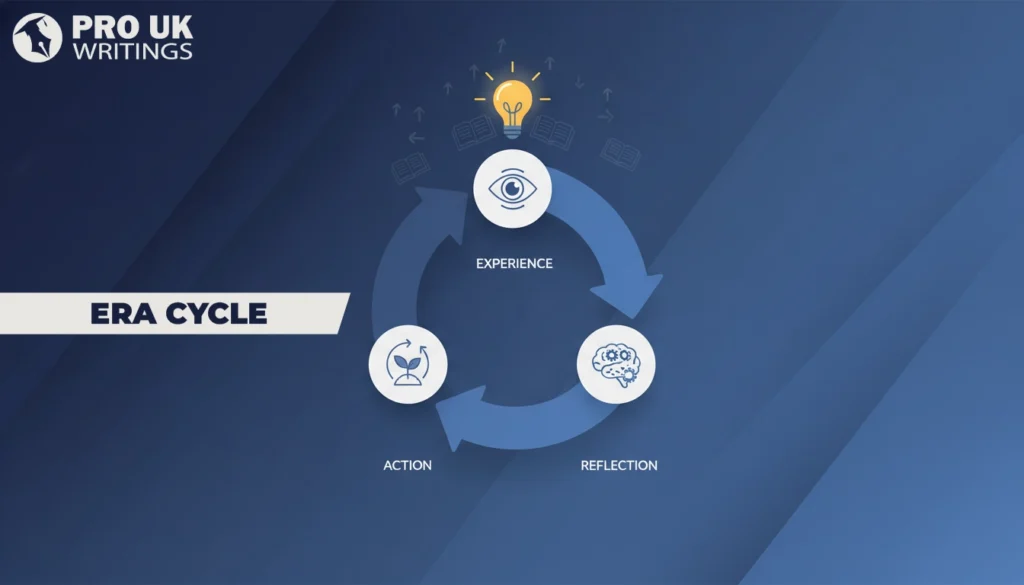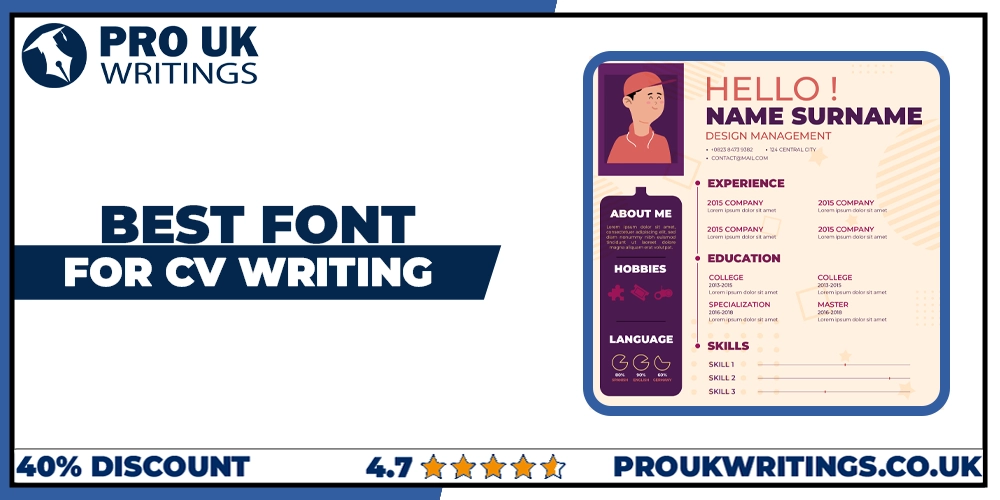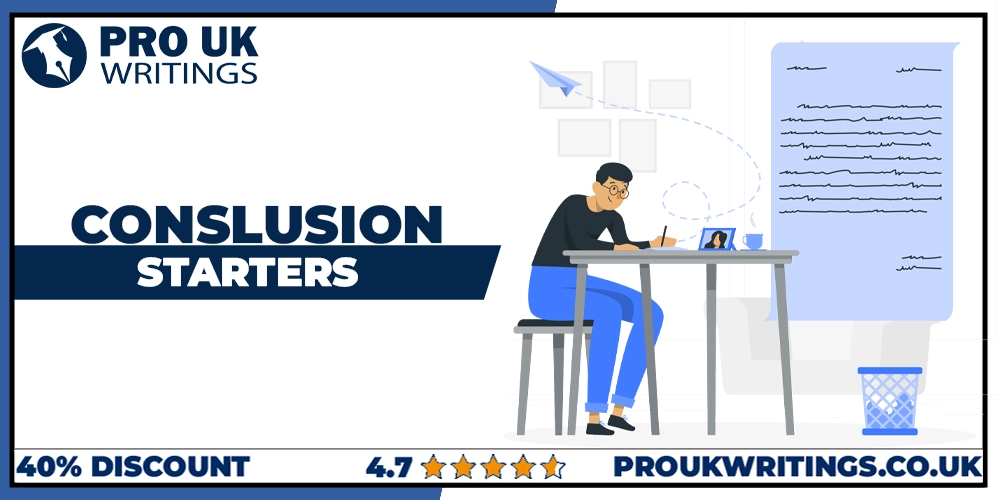If you want to make a strong opinion about anything, you need to practice different aspects of the subject. No doubt debates are more than just arguments. It is the best way that make your thinking better, helps you speak clearly and listen to others. However, good discussion topics help students learn how to form opinions and support them with facts. Students, in high school, college, university, online or even at home, can build life skills if they practice the ideas.
Well, school students who want to enhance their knowledge and speaking ability should know debatable topics. Some ideas are serious, and others are just for fun. You can practice on political debate topics, social issues, societal issues, ethical issues, current issues, etc. That is fun about it. In short, there is a topic for everyone. Today, Pro UK Writings bring different kinds of discussion topics and teach you how to choose the best ones.
Also Check: Online Essay Assistance
Need Assisting With any Kind of Writing?
Hire our experienced experts and elevate your grades!
How to Pick a Good Discussion Topic?
However, it should also be in your knowledge that all debatable topics are not good for every group. Here is how to choose the right topic for your group.
Age matters
Younger kids like fun topics. Teens can handle controversial issues.
Setting Counts
A class project is different from a formal debate.
Balancing Seriousness and Fun
You need both critical analysis and laughter.
You have to think first about what kind of topic fits your group best.
Type of Debate Topics
First of all, we should know the types of debate ideas. It is possible that these types can be broken into many more branches but here we are dividing it into only 5 main kinds to make it simple for everyone.
Controversial Debate Topics
Well, these are sometimes hard to talk about but it seems that they grab attention faster. We can say that these are the hot-button topics. They make people think hard and sometimes get emotional too. However, these topics are good for advanced students or debate teams. Let’s have some examples of such topics.
- Should the death penalty be banned?
- Is animal testing ever okay?
- Should we allow human cloning?
- Do violent video games affect children?
- Should schools use armed guards?
These controversial ideas work well for high school and college debate teams.
Funny and Humorous Debate Topics
It is also true that debates do not always have to be serious. Funny ideas are also great for middle schoolers or fun classroom debates. Let’s have a look at some fun debate topics you can choose.
- Should teachers wear costumes on Fridays?
- Is cereal a soup?
- Are aliens real?
- Is it okay to wear socks with sandals?
- Do cats make better friends than humans?
- Are ghosts real?
- Is there a gender difference in fragrance?
However, such topics are very light to discuss. They make students laugh but let them learn a lot.
Educational and Classroom Debate Topics
To make school students good at debating, it is very useful to talk to them daily. There are many educational and classroom debate topics that they can prepare. Here are some topics that are related to learning and school life.
- Should cellphones be banned in public schools?
- Is online education better than classroom learning?
- Should we get rid of standardised testing?
- Should school uniforms be required?
- Is sex education important in schools?
So, these kinds of topics can help students think their own way and let them think for themselves.
Political and Ethical Debate Topics
However, there are also very interesting and informative political and ethical ideas. But usually, these kinds of topics are fit for older students. Like college and university students mostly focus on political issues, ethical issues, and talk about big ideas about society. Here are some examples.
- Should voting be required?
- Is freedom of speech always good?
- Should we raise the minimum wage?
- Is affirmative action fair?
- Should cash incentives be used in schools?
These political debate topics spark deep conversations.
Environmental and Tech Debate Topics
It is also true that in the 21st century, we face big changes in nature and technology. So, these environmental topics and technology topics are important for students to discuss.
- Should we ban fossil fuels?
- Is organic farming better for the planet?
- Should we protect more national parks?
- Is artificial intelligence (AI) dangerous?
- Will Blockchain technology change the world?
Students should focus on such kinds of topics because they help them learn about the environmental impacts. Also, these topics will teach them about technological advancements.
Also read: Persuasive Essay Topics
List of General Debate Topics
Here are some top debate topics. You can use them for class, clubs, or your next online event.
Popular Debate Topics
- Should there be a drinking age?
- Is gay marriage right?
- Should cosmetic procedures be allowed for teens?
- Is freedom of expression under threat?
Interesting Debate Topics
- Should board games be taught in school?
- Is George Washington still a good role model?
- Should mobile phones be banned in classrooms?
- Do we live in a dystopian society?
Best Discussion Ideas for Students
- Should standardised tests decide your future?
- Should we end animal exports?
- Are public speaking skills more useful than math?
- Should family mealtimes be required?
Funny Debate Topics
- Is being a night owl better?
- Should we ban homework on weekends?
- Should classical paintings be replaced with memes?
- Do vegetarians love animals or hate vegetables?
Final Thoughts
Finally, we have reached the end of this article. So, what we have learnt from that debate helps students build key life skills. It teaches how to research, how to speak, and how to see both sides of a problem. It does not matter that you are picking fun debating ideas or deep societal issues, the goal is the same that is “learn to think”. So, grab one of these discussion ideas, form teams, and let the discussion begin.
In the end we must say, good debates help build a more functional society. They prepare students to be informed, respectful, and sharp thinkers in a noisy world!
For any type of service and blog information, Pro UK Writings have always exceeded all expectations. Now that you know all about fonts for CVs, also make sure to read Emotive Language and Language Features.
FAQs
Find Solutions of your queries
The font may not seem to grasp that much significance but is actually one of the key factors that go into when you are writing a CV. The font of your resume will leave an impression on the recruiter. So, it is very important to pick the right font for your resume. There is no point if your CV lacks readability and is too complex to understand.
The standard considered size for your resume font size is anywhere from 10 to 12 points. Furthermore, you can acknowledge the length of your font size. Considering how much the size of your font has impacted the page layout. The resume should not exceed more than 1 page.
Yes, you can! While keeping it professional and simple. You are allowed to use more than 1 font for your CV. Use different fonts for various sections of your CV. Will help the information to be more stand out than usual. For example: you can use a different font for your name, qualification background prior job experiences and residential area to highlight the imperative information.
10 points is the smallest font size for a CV. While it is considered to be the smallest font size. The standard length of a font size is from 10 to 12 points. Another reason for this being the smallest font could be the apparent reason some other fonts may just be too big for a resume. But since the ideal standard length of font starts from 10 points if it seems too small to read you can switch it up to 11 or 12.
When you are writing a CV. Try to keep it as formal and simple as possible. The colour of your CVs font should be black. You can us multiple font styles. To emphasize different sections of your CV. But the colour for all section of your CV should be the same which is black.
The maximum number of fonts that are acceptable to use in a CV is 2 or 3 fonts. It should not be more than this. Limiting the number of fonts that go into your CV. Helps with keeping the writing formal and increases the readability if you will use 10 to 15 different fonts in your CV. Then it will be apart from the professionalism scale and will affect readability.

Blog Author
Meet Mister Sebastian James who is an accomplished academic writer, who holds great credentials in various different faculties of academic writing having the degree of doctorates. Mr. Sebastian James is the original author all of the content written on this website with great knowledge of academics Mr. Sebastian James is the original upfront writer for Pro UK Writings.





